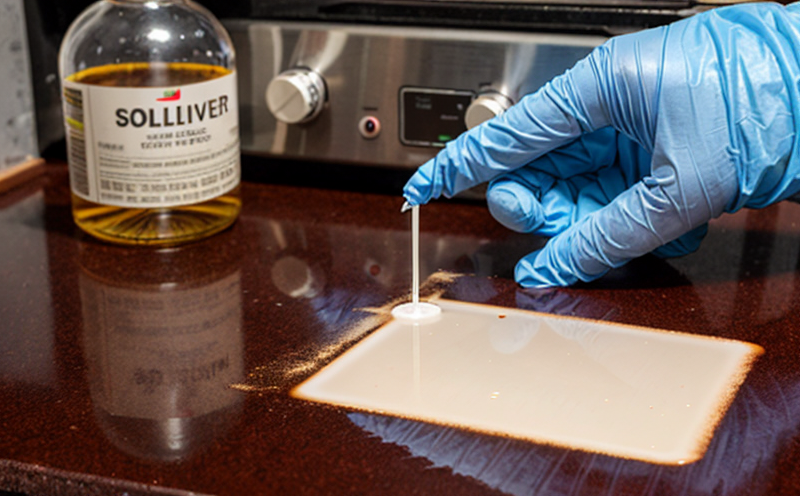Solar Panel Solvent Residue Testing
In today's rapidly evolving photovoltaic industry, ensuring the quality and reliability of solar panels is paramount. One critical aspect that directly impacts a panel’s performance and longevity is the presence of solvent residues. Solar Panel Solvent Residue Testing plays an indispensable role in identifying and quantifying any residual solvents left behind during manufacturing processes.
Manufacturers use various solvents for cleaning, etching, and other processes to ensure optimal performance of solar cells. However, traces of these solvents can remain as residues on the surface or within the structure of the panels. These residues can lead to reduced efficiency, increased degradation rates, and potential safety hazards over time. By conducting thorough solvent residue testing, manufacturers and quality managers can identify and mitigate such issues early in the production cycle.
The testing process involves a series of meticulous steps aimed at detecting even trace amounts of solvents. This includes sample preparation, which often requires careful cleaning and drying of the solar panel. The chosen method for detection is typically gas chromatography (GC) or liquid chromatography (LC), depending on the specific solvent to be analyzed.
Once the samples are prepared, they undergo analysis using advanced instrumentation that can accurately measure the concentration levels of solvents. This data helps in determining compliance with international standards such as ISO 13406-2 and ASTM D7929. Compliance is crucial for ensuring the reliability and safety of solar panels, especially given their increasing use across various sectors.
Understanding the importance of this testing process allows for better decision-making in quality control measures. By addressing solvent residues early, manufacturers can enhance product performance, extend service life, and meet stringent industry standards. This not only builds trust among consumers but also contributes to a more sustainable photovoltaic market.
Why It Matters
The significance of Solar Panel Solvent Residue Testing cannot be overstated in the context of the solar energy sector. Given that solar panels are exposed to various environmental conditions and operational stresses, any residual solvents can have far-reaching implications for performance and longevity.
- Enhanced Efficiency: By eliminating residues, manufacturers ensure higher efficiency levels from the outset, leading to better overall performance.
- Increased Durability: Reduced solvent residues contribute to longer-lasting panels that are less prone to degradation over time.
- Safety Concerns: Solvent residues can pose safety risks if not properly managed. This testing helps in identifying and mitigating such hazards early on.
Moreover, compliance with international standards is essential for market acceptance and regulatory approval. Solar Panel Solvent Residue Testing ensures that panels meet these stringent criteria, thereby facilitating smoother operations and broader market penetration.
Industry Applications
| Application Area | Description |
|---|---|
| Solar Panel Manufacturing | Testing ensures that panels are free from residues that could interfere with cell performance. |
| Quality Control and Assurance | Identifies potential issues early, reducing the need for costly rework or recalls. |
| Regulatory Compliance | Ensures adherence to international standards, facilitating smoother operations and broader market access. |
International Acceptance and Recognition
The importance of Solar Panel Solvent Residue Testing is widely recognized across the global photovoltaic industry. Compliance with international standards such as ISO 13406-2 and ASTM D7929 ensures that solar panels meet stringent quality benchmarks, thereby enhancing market acceptance and regulatory compliance.
- Market Access: Meeting these standards opens up access to numerous markets across the globe.
- Increase in Demand: Compliance leads to increased demand for high-quality solar panels among consumers and stakeholders.





